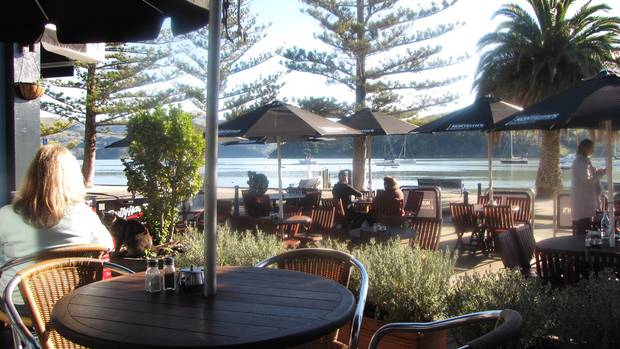
The backdown comes after historian Scott Hamilton called out Bully Hayes Restaurant & Bar in Akaroa for glorifying the 19th century American, and ignoring the horrific deeds he inflicted on the Pacific, which included human trafficking, and abducting and raping young women and children.
The historian shared a series of tweets about the "absolutely chilling" history of Bully Hayes to highlight New Zealand's links to the Pacific slave trade, as protests against racism and colonialism have erupted around the world.
In Bristol the statue of 17th century slave trader Edward Colston was been pulled down this week by Black Lives Matter protesters following a rally against the death of George Floyd and racial injustice.
Restaurant owner Wayne Jones told the New Zealand Herald that while they were initially a little "taken back" by the sudden public interest in the name, it had given them a good moment of reflection.
"The restaurant already had this name when we bought it 17 years ago and whilst we were originally a bit taken aback by the interest in the name, we've now had a chance to reflect and we think that the time is right for a change.
"Times have changed and people all over the world are justifiably starting to question what they feel is the glorification of individuals with abusive histories.
"I've read Scott's comments to get his perspective and come to the conclusion that he makes a really good point.
"I've also reached out to him as I'm keen to understand more about a topic which he obviously has a lot of knowledge on."
The restaurant's website describes Hayes, born William Henry Hayes, as an "illegal grog trader, swindler, gun runner and slave trader", who spent some time in the small settlement, even establishing a pub.
The website also describes him as a "colourful character" and "lovable rogue", which Hamilton said was denying the "absolutely chilling history" and horrific deeds he inflicted on the Pacific.
These included abducting and raping young women and children from various Pacific islands, and stealing locals and selling them to the plantations of Tahiti, Fiji, and Queensland - details Hamilton came across researching his book The Stolen Island.
He'd met Niuean descendants of those Hayes had abused, along with South Sea Islanders in Queensland whose ancestors were victims of the forced labour trade, known as "blackbirding".
On Tuesday, Hamilton told the Herald it was "really positive" to hear about the name change, and he didn't hold any grudges to the restaurant owner.
"We are all learning history. I used to be a bit of a white supremacist myself growing up in a white part of South Auckland."
Since a story was published by the Herald on Monday, Hamilton said he'd been contacted by Niuean and South Sea Islanders in Queensland who were upset to hear a restaurant in New Zealand was named after Hayes.
"I this can be seen as another education exercise for Pākehā, and a process for lot of old country pubs across New Zealand to look to.
"It is not about burying a story, but not celebrating it."
Jones said the restaurant, well-known in the region, was calling on Akaroa and Christchurch residents to help decide on a new name.
"This seems like a really good opportunity to find a new name for the restaurant that is more fitting of the business we are today.
"So, we're inviting our customers and all residents of Akaroa and Christchurch to leave a suggestion for a new name in our suggestion box.
"We'll collect suggestions throughout the month of June and then in July we'll go through all of the suggestions, pick our top three and put the names to a vote.
"A name change is an expensive process as we'll have signage, menu and our website to change among other things and given the closure during the Covid-19 outbreak we're struggling a bit financially. It may take a us a while to get it all complete, but we'll do our best to get it done as soon as we can.
"We value the support from our loyal customers but given the circumstances it is time to move on and bring something positive to the world in these trying times."













